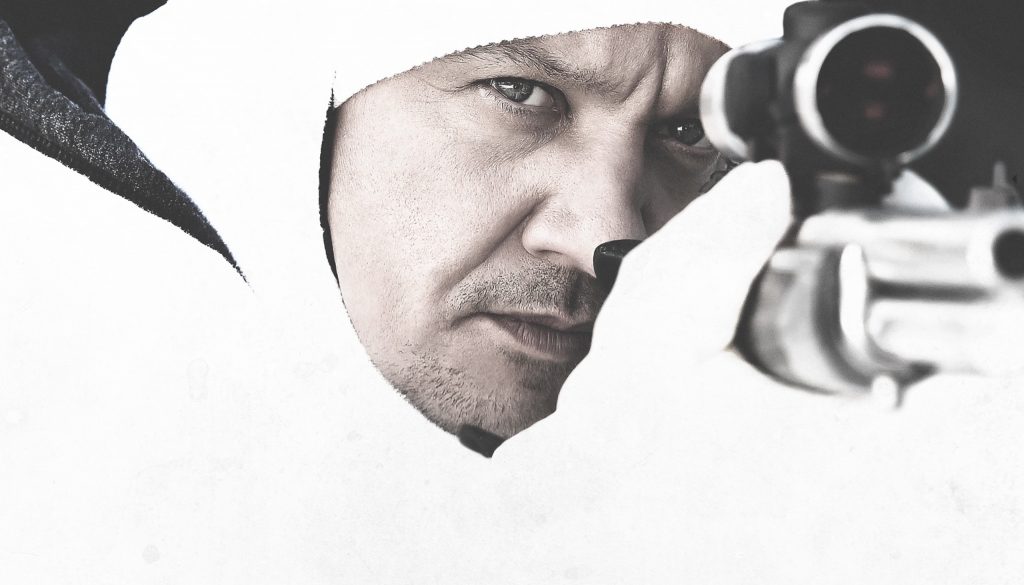Whether its prestige pictures or as a bow-carrying hero, Jeremy Renner has proven himself to being one of the most reliable supporting players in Hollywood. Due to this, many forget just how talented Renner is, rarely receiving the recognition he deserves in smaller roles.
Reiner now moves into the spotlight with his latest film Wind River. Set in a desolate Wyoming town, the film follows a veteran tracker who is teamed up with an FBI agent to investigate a murder that occurred on a Native American Reservation.
Following up his Best Picture nominated film Hell or High Water scribe Taylor Sheridan crafts a film that has some familiar qualities. Thanks to its thoughtful approach to narrative and characters, Wind River is actually a slight improvement over that film.
Sheridan is certainly making himself known as one of the best screenwriters working today. Here with his script, he creates a defined sense of place in this desolate Wyoming town, a land where people either have the mental fortitude to survive or are consumed by the land around them. He has an impeccable understanding of capturing Americana at its purest form, with his story and characters never faltering in realism. He deserves a lot of credit for crafting a narrative that doesn’t overplay its mystery for pulpier thrills.
Wind River isn’t just your typical mystery film, with Sheridan interjecting his tight narrative with a meditative portrait on grief. With these characters living in a desolate land, they’re left to ponder their losses and try to find some way to move in. Sheridan depicts this internal struggle with a lot of thought and emotional poignance. Even more minor characters have solid development, making this feel like a lived-in world.
This is also the first time Sheridan has directed, and he does a mostly solid job for his first outing. While most of the film is stylistically reserved, that approach is fitting for a movie grounded in a realistic world. Where Sheridan shows his touch is during the action-oriented sequences. Sheridan builds up the tension to these moments nicely, then executes the sequences with high-octane close quarters combat and steady camera movements.
Performance-wise, everyone delivers in their respective roles. Jeremy Renner may get some serious Best Actor consideration here, with his strong performance showing a man who can’t get back to himself after suffering traumatic losses. Elizabeth Olsen is great as a young FBI agent with a lot of self-doubt, while Gil Birmingham and Graham Greene add a lot of texture to their supporting roles.
Wind River does have some noticeable faults. While I appreciate Sheridan’s approach to grief in the film, some of the dialogue can make his points a bit too obvious. Cutting a speech or two would help make the film’s thematic content a little more subdued, while being equally effective. At 111 minutes long, the film also lags at point in pace, especially towards the finale as the film tries to wrap everything up in a bow.
Wind River is one of the summer’s strongest films, with writer/director Taylor Sheridan depicting an assured mystery that equals in thrills and poignancy.


